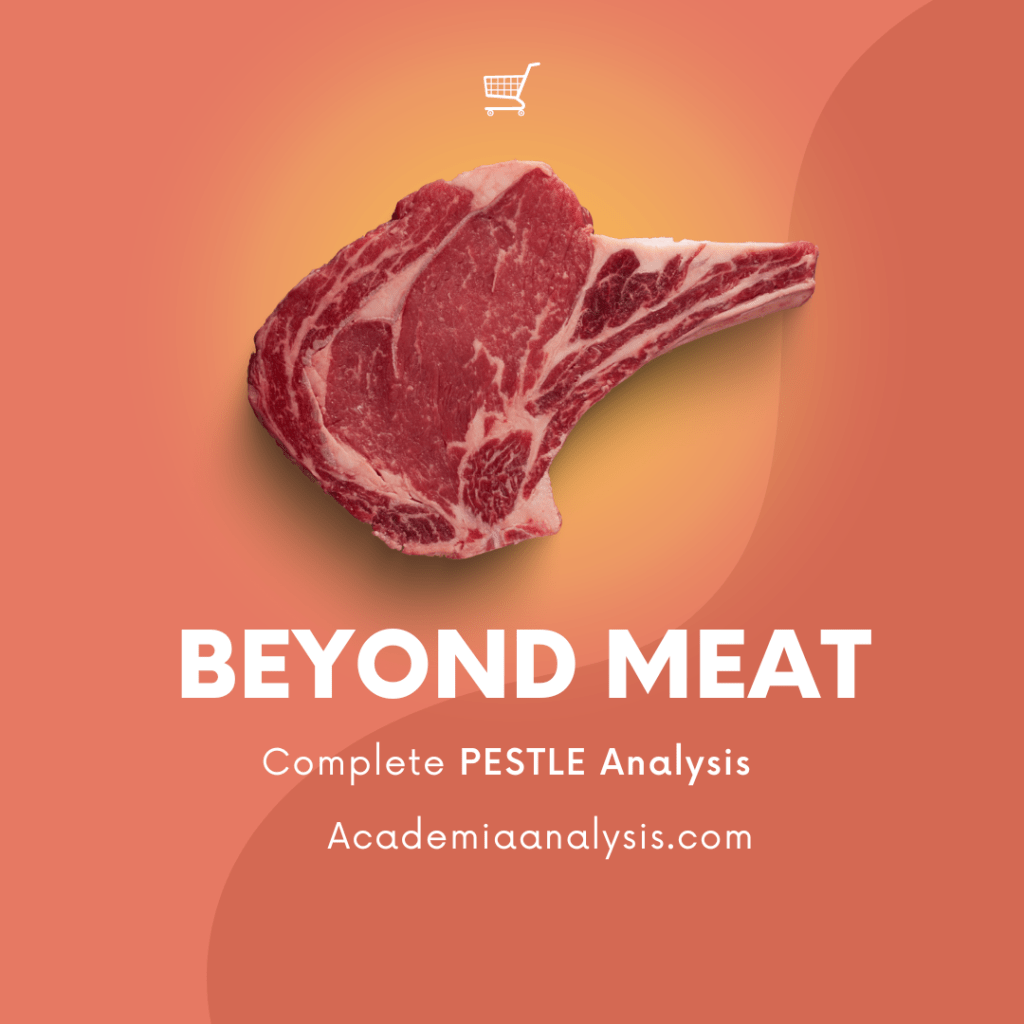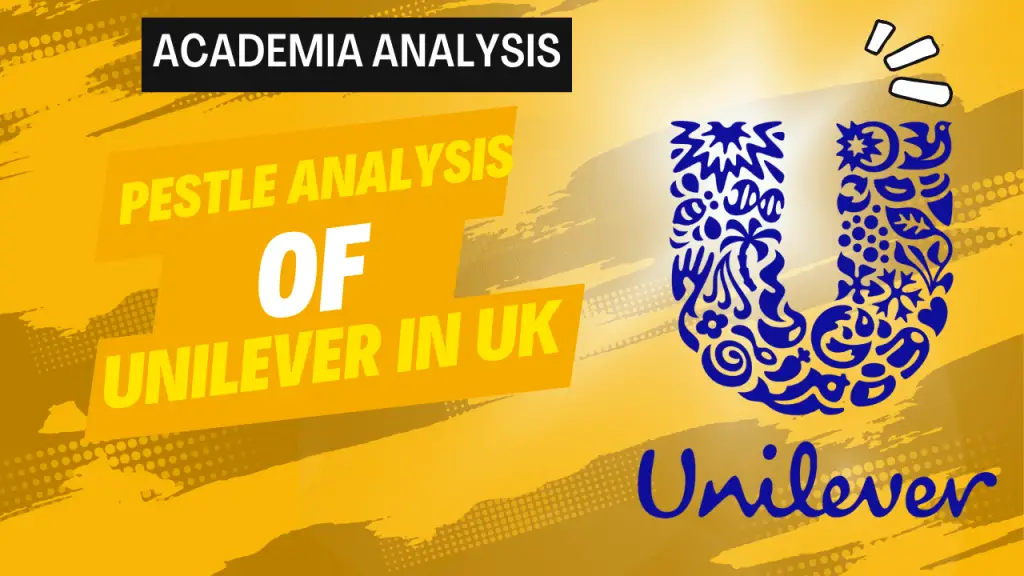In the modern business landscape, a comprehensive understanding of a company’s operating environment is vital for its sustainability and growth. This article conducts a detailed PESTLE analysis of Beyond Meat, a pioneering company in the plant-based meat substitute industry. The PESTLE framework enables us to examine the Political, Economic, Social, Technological, Legal, and Environmental factors that influence the business.
Political Factors
Beyond Meat’s global operations are influenced by various political conditions. The company is subject to policy changes, tax laws, trade restrictions, and other political decisions that can impact its business. On a positive note, many governments worldwide are promoting sustainable and healthy eating habits to combat obesity and climate change. Such political leanings can help Beyond Meat expand its market reach.
European Union’s ‘Farm to Fork’ strategy aims to ensure that the food system contributes to meeting the EU’s climate goals. With its plant-based products, Beyond Meat aligns with such strategies, potentially leading to favorable political conditions in these markets. However, the company also faces challenges, like the labeling laws in various states in the U.S., where there is a debate over whether plant-based products can use terms typically associated with animal-based foods.
Economic Factors
Economic factors play a crucial role in shaping the destiny of Beyond Meat. The worldwide economic condition directly impacts consumer purchasing power. In times of economic prosperity, consumers tend to have more disposable income to spend on products like Beyond Meat, which are typically priced higher than traditional meat products.
Global trends towards plant-based diets also present vast economic opportunities. The plant-based food market is expected to reach $74.2 billion by 2027, growing at a compound annual growth rate (CAGR) of 11.9% from 2020 to 2027. However, the company also faces economic risks. For example, the cost of raw materials like peas, which are key to Beyond Meat’s products, can fluctuate due to factors like weather conditions and trade policies. This fluctuation can impact the company’s profitability.
Social Factors
Social factors also heavily impact Beyond Meat. The company’s success is built upon changing social attitudes towards food and diet. A growing global awareness of the environmental and health impacts of meat consumption has led to an increase in vegetarianism, veganism, and ‘flexitarianism’. This shift towards plant-based diets is a significant driver of demand for Beyond Meat’s products.
Perceptions around taste and texture are significant hurdles for Beyond Meat. Some consumers remain skeptical about plant-based meats, believing they do not taste as good as animal-based meats. The company must continuously innovate to improve the taste and texture of its products to overcome this barrier.
Technological Factors
Technology is a critical factor for Beyond Meat. The company’s success lies in its ability to use advanced technology to create plant-based meat substitutes that taste and feel like animal-based meat. The company invests heavily in research and development to improve its products and develop new ones continually.
The rise of e-commerce has also played a crucial role in Beyond Meat’s growth. Online shopping provides easy access to the company’s products, making them more accessible to a broader customer base. However, dependence on technology also presents risks. For instance, the company needs to ensure its IT systems are secure to protect sensitive business information and customer data.
Legal Factors
Legal factors can also impact Beyond Meat. The company must comply with various laws and regulations in the countries where it operates. These include food safety regulations, labeling requirements, and environmental laws. The company also faces legal challenges around the labeling of its products.
For instance, in the U.S., several states have passed laws restricting the use of terms like ‘meat’ and ‘sausage’ for plant-based products. These laws present a significant challenge for Beyond Meat, as they could potentially limit how the company markets its products. However, the company has been fighting these laws, arguing that they infringe upon its First Amendment rights. These legal battles can be costly and time-consuming, but they are essential for Beyond Meat to protect its business interests.
Environmental Factors
The environmental impact of Beyond Meat’s operations is a significant consideration for the company. The plant-based meat industry is often touted as a more sustainable alternative to traditional meat production, which is a significant contributor to greenhouse gas emissions, deforestation, and water pollution.
Beyond Meat prides itself on the sustainability of its products. According to a life cycle analysis conducted by the University of Michigan, the Beyond Burger generates 90% less greenhouse gas emissions, requires 46% less energy, has 99% less impact on water scarcity, and 93% less impact on land use compared to a quarter pound of U.S. beef. This emphasis on sustainability can help the company attract environmentally conscious consumers and align with governmental policies aimed at reducing environmental impact.
Beyond Meat must also consider the environmental impacts of its own operations. For instance, the company must manage waste effectively and reduce energy use in its facilities. It must also consider the environmental impact of sourcing its ingredients. For example, the cultivation of peas, a key ingredient in Beyond Meat’s products, can contribute to soil degradation if not managed sustainably.
Conclusion
Beyond Meat operates in a complex environment influenced by numerous external factors. The PESTLE analysis provides a comprehensive overview of these factors and their potential impact on the company. Overall, Beyond Meat has significant opportunities for growth, driven by changing consumer preferences towards plant-based diets, political support for sustainable food systems, and technological advancements. However, the company also faces challenges, including legal battles over product labeling, consumer perceptions about the taste of plant-based meats, and environmental considerations related to its operations and supply chain. By understanding and responding to these external factors, Beyond Meat can navigate these challenges and take advantage of the opportunities to ensure its long-term success






